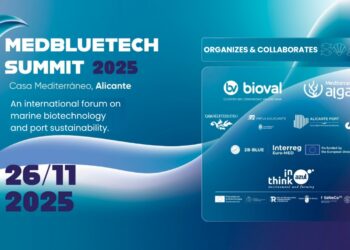FAO asked to exclude carnivorous fish from sustainable aquaculture – More than 160 groups have signed a letter addressed to Manuel Barange, FAO Fisheries Officer, calling for the exclusion of carnivorous fish farming – such as salmon, sea bream and sea bass – from the definition of ‘sustainable aquaculture’. This initiative, organised by the Rauch Foundation, highlights the need to differentiate between truly sustainable aquaculture practices and those that are harmful to the marine environment.
Eva Douzinas, President of the Rauch Foundation, expressed concern about the impact of the aquaculture industry on our oceans. On World Oceans Day, she highlighted how fish farming practices of carnivorous species are unsustainable and destructive to marine ecosystems, depleting wild fish stocks and compromising biodiversity.
Despite these concerns, the FAO is targeting a 75 per cent growth in sustainable global aquaculture by 2040. Meanwhile, the European Union has donated €1.2 billion to aquaculture since 2014, allocating a significant portion of these funds to marine carnivorous fish farms in Spain, Italy and Greece.
Catalina Cendoya, director of Global Salmon Farming Resistance, pointed out that industrial fish farms are highly polluting, creating dead zones around the nets due to the large amounts of faeces and waste generated. This leads to the formation of slime layers that can be up to two metres deep, showing that current regulations are not sufficient to control these impacts.
The appeal to FAO
The signatories of the letter ask FAO to explain how carnivorous fish farms can be considered sustainable, given the increasing use of antibiotics and chemicals to control diseases and parasites. In addition, carnivorous fish farming consumes more wild fish than are produced, contributing to an unethical transfer of nutrients from the global South to industrialised nations.
Other issues reported include eutrophication of waters near farms, escape of farmed fish, and damage to benthic habitats such as Posidonia meadows, which are crucial for carbon removal from the atmosphere.
Cendoya concluded with a call to make 2024 the year FAO and the EU take action to protect the oceans and ensure sustainability for future generations. He called on people around the world to get informed, to sign the petition against fish farms and to stop buying farmed fish.
The letter is an important step in raising public and institutional awareness of the negative impact of carnivorous fish farms and the need to promote truly sustainable aquaculture practices.
FAO asked to exclude carnivorous fish from sustainable aquaculture







